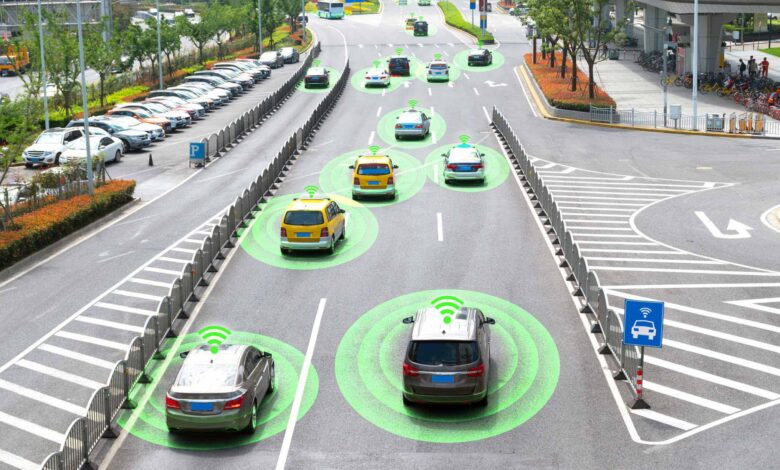The Future of Driving: Vision for Sustainable Mobility

Sustainable mobility is not about driving cars. It’s about rethinking and redesigning how we move from one place to another. This includes public transportation and bicycles, electric vehicles, and autonomous driving. At the center of this transformation lies a key player in the automotive industry.
With its innovative technology and commitment to sustainability. Its vision for the future of driving BMW is paving the way for sustainable mobility.
The Evolution of Driving
For decades, driving has been synonymous with personal cars. But, with growing concerns over
- climate change
- pollution
There has been a shift towards more sustainable forms of transportation.
BMW recognized this early on and invested in electric vehicles and alternative fuel technologies. In 2013, they launched the BMW i3, their first electric car. Since then, they have continued expanding their electric and hybrid vehicles fleet.
But it’s not about the type of fuel used. BMW is also focused on reducing emissions from traditional gasoline and diesel engines. Their EfficientDynamics technology optimizes engine performance while minimizing energy consumption, making their cars more fuel-efficient. While electric and hybrid vehicles showcase the brand’s commitment to a cleaner future.
The Vision for Sustainable Mobility
BMW’s vision for sustainable mobility goes beyond producing friendly vehicles. They are also exploring new ways to reduce the impact of transportation on the environment and society as a whole.
Urban Mobility Solutions
BMW is working towards
- Convenient
- efficient
sustainable solutions in cities where transportation contributes to pollution and congestion. One such solution is the BMW Range. Now, the car-sharing program allows residents to rent electric or hybrid vehicles by the minute.
BMW is also partnering with public transportation companies to integrate their services with public transit systems. This not only reduces congestion but also provides more sustainable options for commuters.
Autonomous Driving
Autonomous driving technology has the potential to revolutionize transportation. With self-driving cars, there will be
- fewer accidents
- reduced traffic congestion
- optimized fuel consumption.
BMW is at the forefront of this technology with their BMW iNEXT autonomous concept car. The vehicle will have Level 3 autonomy, meaning it can drive on highways and in certain traffic situations. This will not only make driving safer. But also reduce the carbon footprint of transportation.
The Role of Technology
Technology plays a crucial role in BMW’s vision for sustainable mobility. From intelligent sensors to advanced battery systems. Every aspect of their vehicles is designed with sustainability in mind.
Electric Powertrains
The heart of any electric vehicle is its powertrain – the system that powers the wheels. Regenerative braking and optimized battery management systems. BMW’s electric powertrains are designed for the most incredible efficiency. This extends the range of their vehicles and reduces energy consumption.
Sustainable Materials
Also, to sustainable fuel and energy sources, BMW is committed to using friendly materials in their vehicles. For example, the BMW i3 is made of carbon fiber-reinforced plastic, which is lightweight and recyclable.
In their cars, explore incorporating other sustainable materials, such as
- recycled plastics
- natural fibers.
This reduces their environmental impact and creates a market for recycled materials.
The Impact on Society
Sustainable mobility has a ripple effect on society. BMW is taking steps to ensure that its vision impacts the world.
Job Creation
As BMW expands its fleet of electric and hybrid vehicles, it will create job opportunities in the
- manufacturing
- maintenance
- support sectors.
This benefits the economy and supports sustainable development by providing clean energy jobs.
Improving Air Quality
Transportation is a significant contributor to air pollution. The commitment to sustainable mobility aims to reduce this impact. Promoting
Electric hybrid vehicles are helping to improve air quality in cities and reduce the adverse health effects of air pollution.
Collaboration with Stakeholders
BMW recognizes that achieving its vision for sustainable mobility requires collaboration with various stakeholders. This includes governments, public transportation companies, and energy providers. Working together towards a common goal can create a more sustainable transportation system.
The Future is Now
BMW’s vision for sustainable mobility may seem like something from the distant future, but many initiatives are already being implemented today.
The bmw f10 and i8 electric cars are available for buy, and their ReachNow car-sharing program is expanding to more cities. The BMW iNEXT autonomous concept car is set to launch in 2021, and their EfficientDynamics technology is improving the fuel efficiency of their traditional engines.
Conclusion
In conclusion, BMW is a luxury car brand pioneer in sustainable mobility. Their vision goes beyond producing friendly vehicles. They are innovating and collaborating to create more sustainable transportation.
From electric powertrains to autonomous driving technology, BMW is paving the way for a greener and cleaner future.
So, let’s embrace this vision and drive towards a more sustainable tomorrow. Let’s make our journeys about reaching our destinations and impacting the environment and society. Together, we can make a difference in shaping the future of driving.




